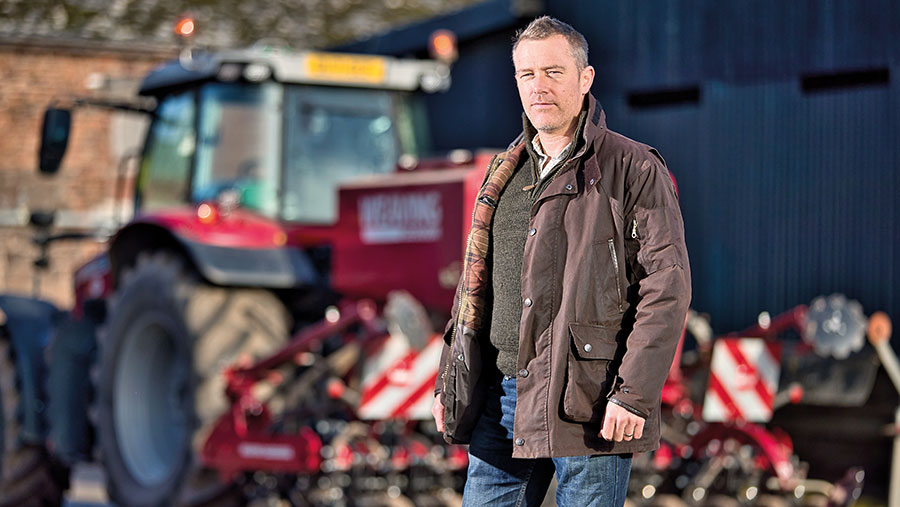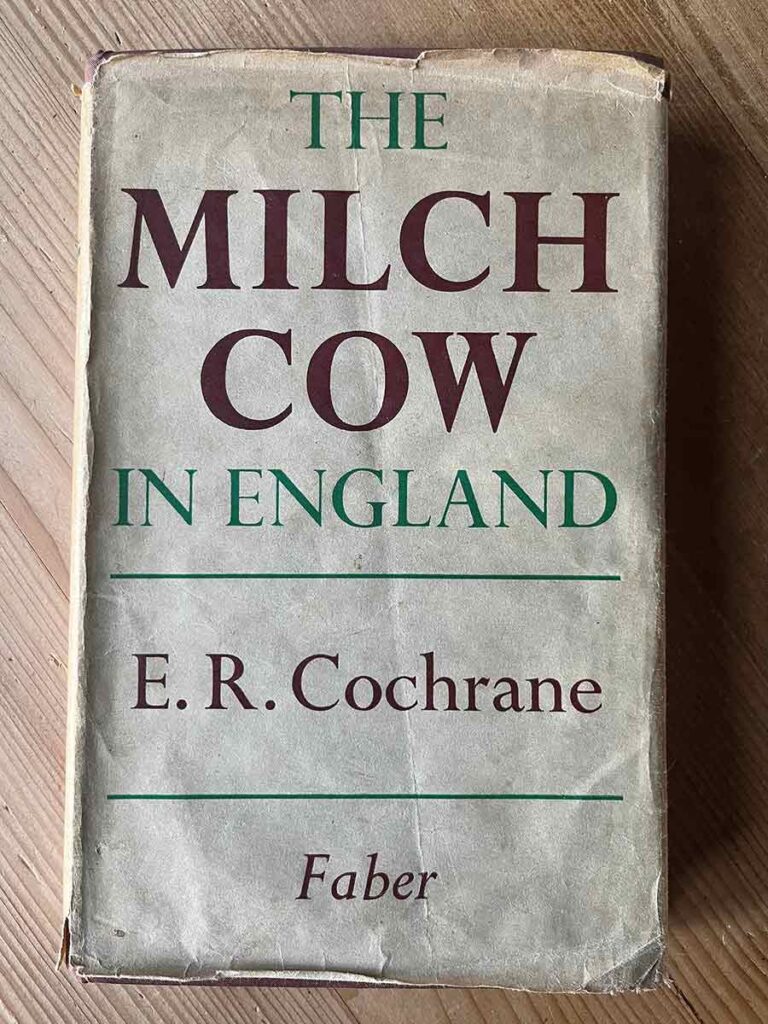Will’s World: Cache in attic yields familiar farming story
 Will Evans © Richard Stanton
Will Evans © Richard Stanton The trouble with being part of a multi-generational farming family is that you tend to accrue multi-generational junk in your attic.
I know this all too well because we’ve been sorting ours out lately, and the old truth that farmers never throw anything away in case it comes in useful one day has never been more obviously proved.
Stacks of gramophone records, unrepairable electrical appliances and rolls of carpet are just a few of the things that should have been got rid of decades ago.
See also: Taking Stock looks back on 50 years of farming
But among the pile, and much to my delight, a treasure turned up. Sadly, not of the type that made Del Boy and Rodney rich in the end, but nevertheless still a treasure.
It was a book called The Milch Cow in England by ER Cochrane, a Christmas present from my grandmother to my grandfather in 1946.
She wrote a lovely inscription on the inside front cover (why don’t we do this anymore?), including a few lines of poetry, which brought a tear to my eye when I read it. I’m a hopeless old romantic, just like she was.
Page turner
I wasn’t expecting to get drawn into the book, mainly because some of those old volumes about farming can be a little dry, to say the least.
But I read the intro and was riveted from the first paragraph. I can only describe it as a devastatingly sassy yet highly intellectual critique of the entire dairy and beef industry in 1944.

© Will Evans
Thrown in for good measure is some “frankness and plain speaking” (as the author calls it) on the state of British farming as a whole.
Subtitled A Plea for Constructive Breeding, it gets right to the point: “Superstition and irresponsibility, but still more, muddled thinking and vaguely benevolent intentions, have for too long impeded constructive breeding in this country, and have greatly added to the costs of milk and meat production without benefiting the agricultural industry.”
No pussyfooting around from Mr Cochrane, just straight for the jugular. What a guy. Imagine the storm a statement like that would create on social media or in online forums if it was made today. Glorious stuff.
Nothing new
There are two general things that I find most interesting about it, though. The first is that it shatters the nostalgia-induced illusions that everything was better in “the good old days” of farming, when it patently wasn’t.
The author repeatedly laments many of his fellow farmers’ neglect of animal husbandry, “whether it be the result of ignorance or lack of interest and initiative, on the part of farmer, landlord, or state”, as well as the generally poor condition of pasture, soils and grassland management at the time and the associated impact on costs of production.
The second is the striking similarities with modern farming.
He talks bitterly about the chronic lack of labour on farms; the failure of farming businesses to co-operate with each other for mutual benefit; how difficult it is for new entrants to get started due to lack of capital; and his severe disappointment in the government and its poor understanding of farming matters.
I don’t imagine the last of those will ever change, though.
My only regret is that there isn’t an audio version available, allowing us to hear the author speaking in that perfectly clipped, passive-aggressive BBC English of the time.
Though I’ve found out that the print version does sell for upwards of £300 online. Told you it was a treasure.


